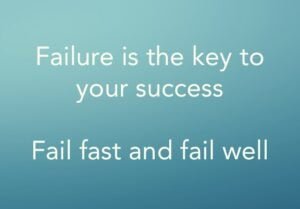This is a potent statement, one that brings attention to the importance of confronting our emotional responses rather than seeking to bury them. In a society that often promotes emotional stoicism or the notion of ‘keeping a stiff upper lip’, the value of understanding and learning from our emotions is frequently overlooked.
Understanding Our Emotional Fear
Fear of our emotions is a learned response. As children, we express ourselves freely until we’re taught that certain emotional displays are inappropriate or undesirable. Over time, these lessons instil in us a fear of truly experiencing and expressing our emotions, especially those deemed negative like anger, sadness or fear. Reflect on this: how often have you found yourself suppressing your emotions to maintain a composed exterior?
Emotions as Messengers
Emotions aren’t the enemy; they are, in fact, messengers. Each emotion we experience carries valuable information about our needs, desires, and boundaries. When we’re feeling joyful, our needs are being met. Conversely, feelings of anger or sadness often signal that something in our environment or our behaviour isn’t serving us well. By tuning into these emotional signals, we can glean valuable insights into what we need to do to restore balance in our lives.
The Art of Emotion Listening
Listening to our emotions requires practice and patience. It’s about creating a safe space within ourselves to experience our emotions without judgement or fear. Techniques such as mindfulness meditation or emotion-focused therapy can be instrumental in helping us develop a more receptive and understanding relationship with our emotional experiences.
Acceptance and Change
Once we’re attuned to our emotional landscape, the next step is discerning when to seek change and when to cultivate acceptance. Not every emotional response signals a need for action. Sometimes, our emotions reflect circumstances beyond our control, and acceptance is the most appropriate response. Distinguishing between the two can be challenging, but it’s an essential skill for managing our emotional health effectively.

Emotional Awareness Reflective Quiz
Consider your own relationship with your emotions by answering the following questions on a scale of 1 (Not at all) to 5 (Very much so):
- I often find myself suppressing or hiding my emotions.
- I see my emotions as signals or messages.
- I regularly make time to check in with my emotions.
- I struggle to differentiate between emotions that signal a need for change and those requiring acceptance.
- I feel comfortable experiencing and expressing a range of emotions, not just positive ones.
- I often judge myself for feeling certain emotions.
- I have strategies in place (like meditation or journaling) to help me listen to my emotions.
- I believe that understanding my emotions has led to positive changes in my life.
Reflecting on these questions can help you gauge where you are in your emotional awareness journey and guide you on where to focus your efforts moving forward. Remember, emotions are not your enemy; they’re simply messengers carrying valuable information for you. It’s up to you to listen.
Breaking My Addictions Summary
Recognising our emotions as messengers rather than enemies can profoundly transform our relationship with ourselves. Embrace your emotions, understand their messages, and use this information to bring about the necessary changes in your life or cultivate acceptance. By no longer fearing or hiding from your emotions, you open up a pathway to greater self-awareness and personal growth.













